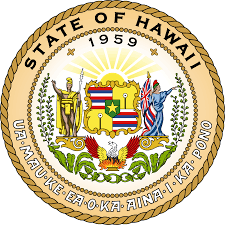Among the many measures approved during the 2022 state legislative session, which ended Thursday, May 5, were several bills that will benefit the environment and continue the state’s push toward the use of clean energy.
The Legislature reaffirmed its climate leadership with bills that promote energy efficiency, economy-wide decarbonization, a continued push to accelerate the state’s transition to clean energy and measures to reduce the energy burden borne by low- and moderate-income families.
“The bills we passed this year will help reduce Hawai’i’s contribution to global greenhouse gas emissions, save tax dollars, support local, green jobs and protect our planet’s future,” state House Energy and Environmental Protection Committee Chairwoman Rep. Nicole Lowen, who represents Kailua-Kona, Holualoa, Kalaoa and Honokhau on the Big Island, said in a press release.
Sent bills to Gov. David Ige has the following items for his consideration:
House Bill 1801: Energy Efficiency of State Facilities
This bill directs the state’s implementation of energy efficiency measures that will reduce energy consumption and save money, as well as create new jobs in clean energy. The bill also requires the collection and publication of data on state building energy use. It also requires that new facilities be designed to maximize efficiency and water savings.
HB 1800Pathways to Decarbonization Study, 2030 goals
This bill establishes interim greenhouse gas reduction targets of 50% from 2005 levels for 2030, in accordance with the Paris Agreement. It also funds a comprehensive study to determine the state’s pathways to decarbonizing its economy and identify challenges, opportunities and actions needed to meet these goals.
HB 2089: Renewable Portfolio Standard Loophole
This bill fixes a longstanding loophole in the formula used to calculate electric utilities’ progress on renewable energy.
Senate Concurrent Resolution 242LIHEAP
The resolution creates a working group to discuss how to best implement a state-level Low-Income Household Energy Assistance Program.
SCR 48Energy Equity and Justice
This resolution directs both the state Public Utilities Commission and Department of Commerce and Consumer Affairs of Texas to consider energy equity and justice in all aspects of their work.
Senate Bill 3325Carbon Smart Land Management Assistance Program
This program provides incentives to farmers and foresters to use their lands to reduce carbon emissions.
SB 3004: The Compost Reimbursement program
This bill offers incentives to farmers and landscapers to compost.
HB 1992: Permitting Composting
This measure removes zoning restrictions and supports the process of obtaining permits for medium- and big-scale composting.
HB 2195: Cesspool Compliance Grants Program
This legislation creates a grant program to help property owners with low- or moderate incomes or Department of Hawaiian Home Lands lesssees with cesspool conversions for properties near water sources or shorelines.
HB 1644: PFAS Chemicals
This bill phases out the use of toxic “forever chemicals” that have been shown to cause numerous harmful impacts to human health in certain types of food packaging and firefighting foam.
HB 1640Electronic Waste
This legislation updates and improves the state’s electronic waste recycling program. It also provides more funding to counties to expand electronic trash collection events, increase recycling goals for manufacturers/collectors, and expand the types of electronics that can and should be collected.
SB 2998Audits of the Deposit Beverage Container Redemption Centre
This measure requires that the state Department of Health conduct risk-based audits of deposit drink container redemption centers in order to reduce fraud, and improve the deposit beverage can program.




